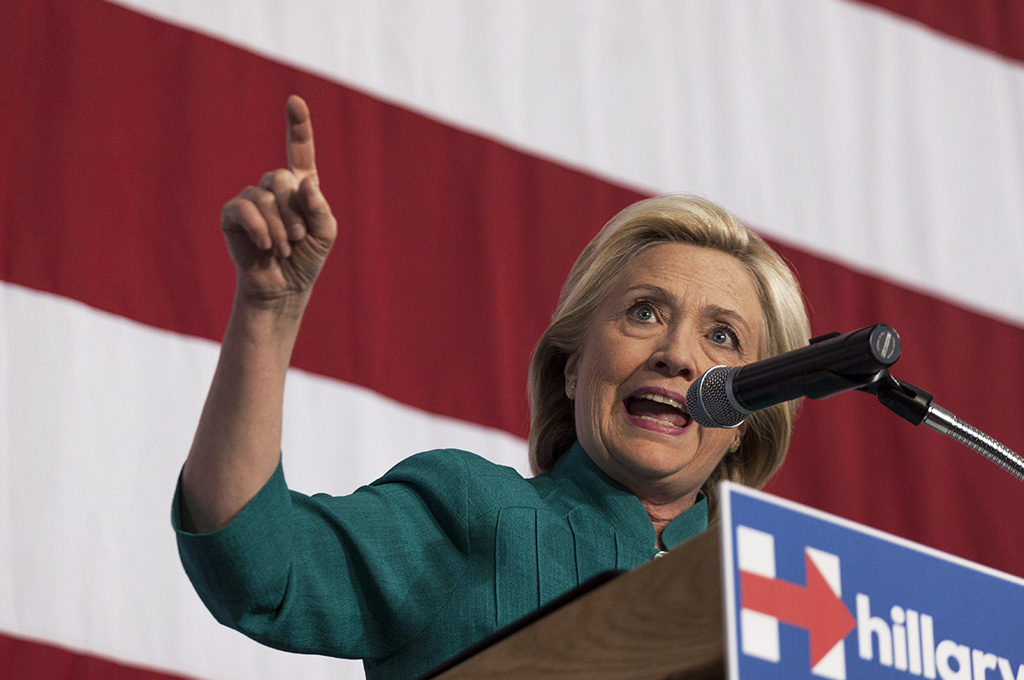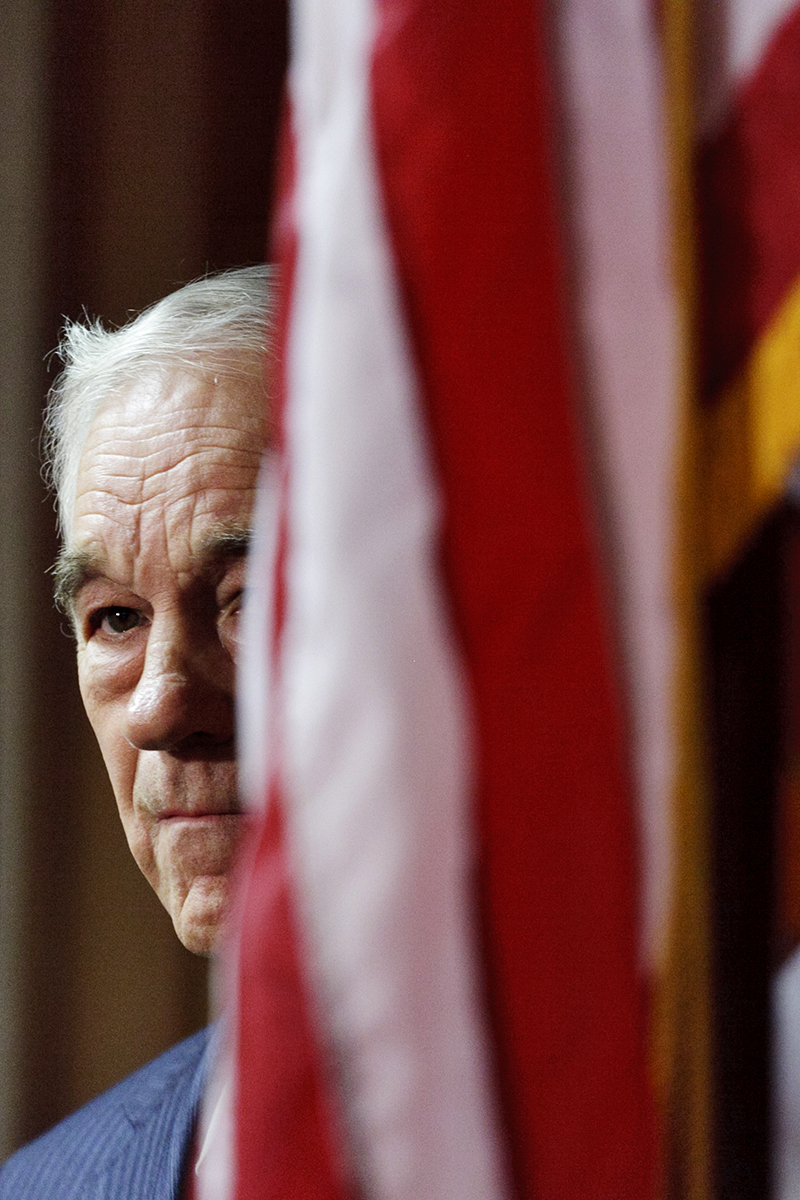
Iowa caucus season is always a crazy circus. Six months away from the first-in-the-nation, there will always be multiple candidates in the state every week. And a month from the caucus, there will always be multiple candidates in the state every day. From cattle calls to detailed policy speeches, reporters and photographers will crowd the venues in a pressure-packed chase to beat deadlines. This will the the third election cycle that I will be photographing. In the spirit of giving paying forward all the help I’ve gotten from other photographers of the years, here is a list of a few things I’ve learned photographing candidates. Some of these are going to be common sense and can be pretty basic, but I’m going to post them anyway. Maybe this list can help ease the learning curve and lessen the mad rush to meet deadlines.
1) Be Nice.
This seems pretty obvious, but besides being the right thing to do, being nice can reap some real benefits.
a) Be nice to the attendees of an event. They are probably excited to see their favorite candidate, and this is not the time to express your personal opinion of their choice. In fact, never discuss your personal opinion of a candidate, political party, etc. You are their to cover the event as a professional. Act like it.
b) Go out of your way to be nice to the candidate’s ground and advance teams that you interact with. If you want to go somewhere to get more access, ask nicely. If they know you’re not going to be a jerk, they will be more willing to say yes-not always, but more often than if you are abrasive. Worst-case scenario, they may look out for you and make sure you don’t get left behind if others are getting more access.
c) Be nice to the other photographers. They are not your competition. I know that sounds counter-intuitive, but it’s true. If you do your job , and do it well, that’s all that matters. If others do their jobs well, that really doesn’t effect you.
d) If you happen to deal with Secret Service (Hillary Clinton has Secret Service protection of course, but others will gain that distinction eventually), be nice to them as well. They have a tougher job than you, and I have yet to have an interaction where they were not completely professional. No overt benefit here, just making a job easier for someone who has been trained to look comfortable in a suit during an Iowa July, and take a bullet if called upon to do so. Would you want that task?
2) You Are Not the Only Photographer
OK, I’ll admit that this was the original motivation for this post. I was recently at an event in an elementary school where a major candidate was laying out a policy speech. The event was in the gym, with a small set of risers being set up for us. As usual, the first row of risers was for video crews, and the second row was for still photographers. There were seven still photographers that I counted, and one decided that he was going to set up two tripods. On a stretch of 15’ of risers meant to hold seven still photographers, on guy set up two tripods. Not only was that pointless (if you need a tripod to resist camera shake, you’re probably going to get a lot of blurry images because of subject movement), but it’s downright selfish. If you get there early enough to get the prime center spot, then good for you. But everyone has a job to do, and if you act this way, you will at least some angry glares.
As a funny side note, the photographer with the two tripods took more than an hour to set up, as he fretted about what lens to put on what camera, kept changing his mind, and even whipped out a monopod which he used. The two tripods were left standing and unused.
3) Risers Suck
Now that you’ve made sure that you have carved out a (fair) space on the risers, don’t stay there any longer than you have to. If the candidate is not going to be on a stage, then risers help to get the walking in shots over the top of a standing crowd. Otherwise, doing nothing but riser shots just seems lazy to me, and the images will show it. If you are allowed, move around. If you see a location that looks like a potentially good shot, and no other photographers are there, that’s where you need to be. If it really is a good spot, then don’t be surprised if other photographers migrate to that location too.
4) Remember, it’s easier to apologize than get permission.
That holds true here as well, but there are limits. If one of the candidate’s ground team was nice (see #1) and arranged for you to get additional access, don’t go beyond where, or stay longer than you agreed. Otherwise, if you’re not sure if you are allowed to be someplace, don’t ask. Act like you belong and make someone overtly tell you that you can’t be there.
5) Try to Learn from Those With More Experience.
Although you don’t want to copy everyone else, watching how others do things can be better than anything learned in a classroom. I love not being in locations as any other photographer (see #3), but if you see a horde of photographers rush somewhere, there’s probably a very good reason for this. Watch how other photographers interact with their subjects. Watch how they carry themselves. If you see a photographer just hanging out before an event, go introduce yourself and ask questions. Most are great people and love to talk shop and help those who are eager to learn, at least I do. Also learn when it’s time to break away and not be a pest. This means when they are shooting, editing or writing captions, leave them alone.
6) Captions Are Just as Important as Images.
Get the captions right. Make sure they are accurate. Don’t fuck this up. You do not want a call from an editor saying that you misspelled someone’s name or worse. You do not want to be the reason for a retraction…ever. Mistakes will happen, but it’s a low feeling when they do so do everything you can to minimize them. Try making a simple text document (like TextEdit that comes with a Mac) and make a caption template ahead of time with the basic information. This can help cut down on errors and make captioning after an event go much faster.
7) When a Staffer Brings Out Water to the Podium, It’s Go Time.
8) You Are Representing Yourself and Your Organization.
Act like a professional. Your integrity is your most valuable asset, and once you lose that, there’s no getting it back. If you are photographing for a news organization, then you are representing them, those who have come before, and those who will come after. Don’t let yourself down by letting them down. Do not violate the ethics of image editing at your organization. Do not photograph to make someone look good or bad to fit your opinions. This is one of the most obvious items on this list, but I would be remiss if I did not include it.
9) Self Edit.
No editor wants to rummage through eight of the exact image. If you aren’t sure of how many images an editor is looking for, ask.
10) Never Assume That You’ve Got It.
OK, it’s halfway through an event and you know that you have a good selection of images from which to choose. You know you’ve got what you need. That’s a great feeling, but don’t stop working. You never know when you are going to get another image that blows everything else away.
It’s after midnight now. I’ve been typing away off and on a couple hours while catching up on some other work. So I’m going to call this list good for now. I’m sure that others will disagree with some of these, and there’s a ton more that can be said. I’d love to here from you and what you think.
